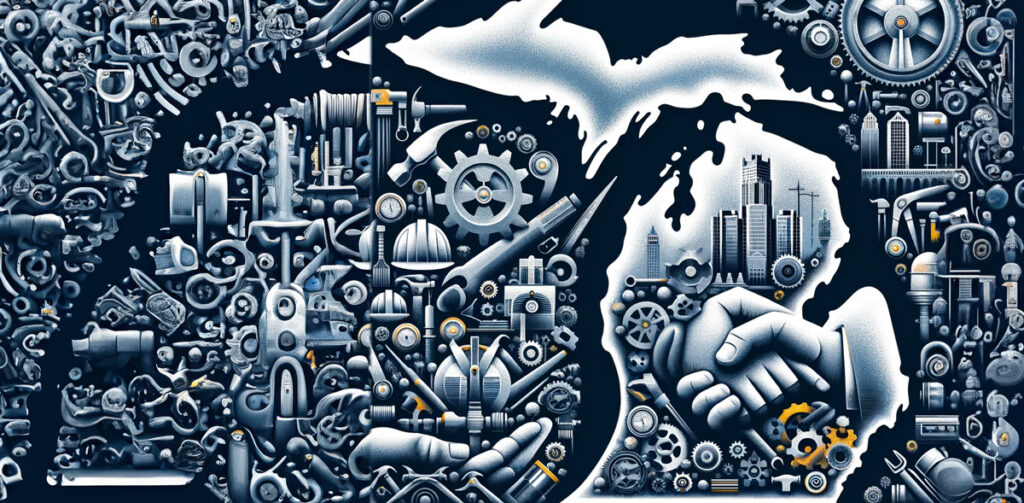The repeal of Michigan’s “right-to-work” law this month marks a significant shift in the state’s labor landscape, representing a major victory for organized labor in a state historically known as a bastion of union activity. This move comes after Democrats regained control of the state government, enabling them to pursue a range of legislative priorities that had been obstructed by the previous Republican majority. The “right-to-work” law, enacted in 2012, allowed workers in unionized workplaces to opt out of paying union dues, a provision criticized by unions for creating “free riders” who benefited from union representation without contributing financially. Its repeal is expected to strengthen unions by requiring all workers in unionized settings to pay dues, thereby enhancing unions’ bargaining power and financial resources.
Right-to-work” laws are state statutes that prohibit agreements between labor unions and employers that make membership or payment of union dues or fees a condition of employment, either before or after hiring. Essentially, these laws allow individuals to work in unionized workplaces without being required to join the union or pay union dues. Proponents of “right-to-work” laws argue that they protect workers’ freedom of association and provide them with a choice about whether to support a union financially. However, critics contend that these laws weaken unions by allowing some employees to benefit from union negotiations and protections without contributing to the costs of union representation, creating a “free-rider” problem. This can lead to reduced funding and bargaining power for unions, potentially impacting their ability to negotiate better wages, benefits, and working conditions for their members. The debate over “right-to-work” laws is deeply intertwined with broader discussions about the role of unions in the workforce, workers’ rights, and the economic impacts of union membership on wages and job growth.
The broader implications of this legislative change extend beyond the immediate financial boost to unions. By restoring the prevailing wage law alongside the “right-to-work” repeal, Michigan signals a commitment to elevating labor standards and ensuring that workers on state projects receive union-level compensation. This aligns with the Democratic leadership’s goals of protecting workers, fostering a strong middle class, and making Michigan an attractive destination for labor.

However, the repeal has sparked concerns among opponents, who argue that it could deter businesses from investing in Michigan, fearing that the state’s labor market may become less competitive due to the perceived increase in labor costs and the potential for forced union membership. This perspective reflects a broader debate over the impact of “right-to-work” laws on economic growth and job creation, with critics pointing to the potential for such policies to contribute to lower wages and weaker labor rights.
The historical context is crucial for understanding the significance of this move. Michigan becomes the first state in nearly six decades to repeal a “right-to-work” law, reversing a trend that saw such laws proliferate across the United States, particularly in the Midwest. The state’s action could inspire similar efforts in other states where Democrats gain legislative control, signaling a potential shift in the national conversation around labor rights and union power.
The controversy surrounding the “right-to-work” law and its repeal underscores the deeply polarized nature of American politics, especially on issues related to labor and economic policy. The inclusion of appropriations in the legislation, effectively making it referendum-proof, highlights the strategic maneuvers both parties employ to advance their agendas and secure legislative achievements against future political reversals.
Looking ahead, the repeal’s long-term effects on Michigan’s economy, labor market, and political landscape remain to be seen. While it undoubtedly strengthens organized labor and aligns with the Democratic Party’s pro-worker stance, the broader economic implications and the response from the business community will play a critical role in shaping Michigan’s future. As other states observe Michigan’s experience, the debate over “right-to-work” laws and their impact on workers, unions, and economies will likely continue to evolve, reflecting the ongoing struggle to balance economic competitiveness with labor rights and protections.

